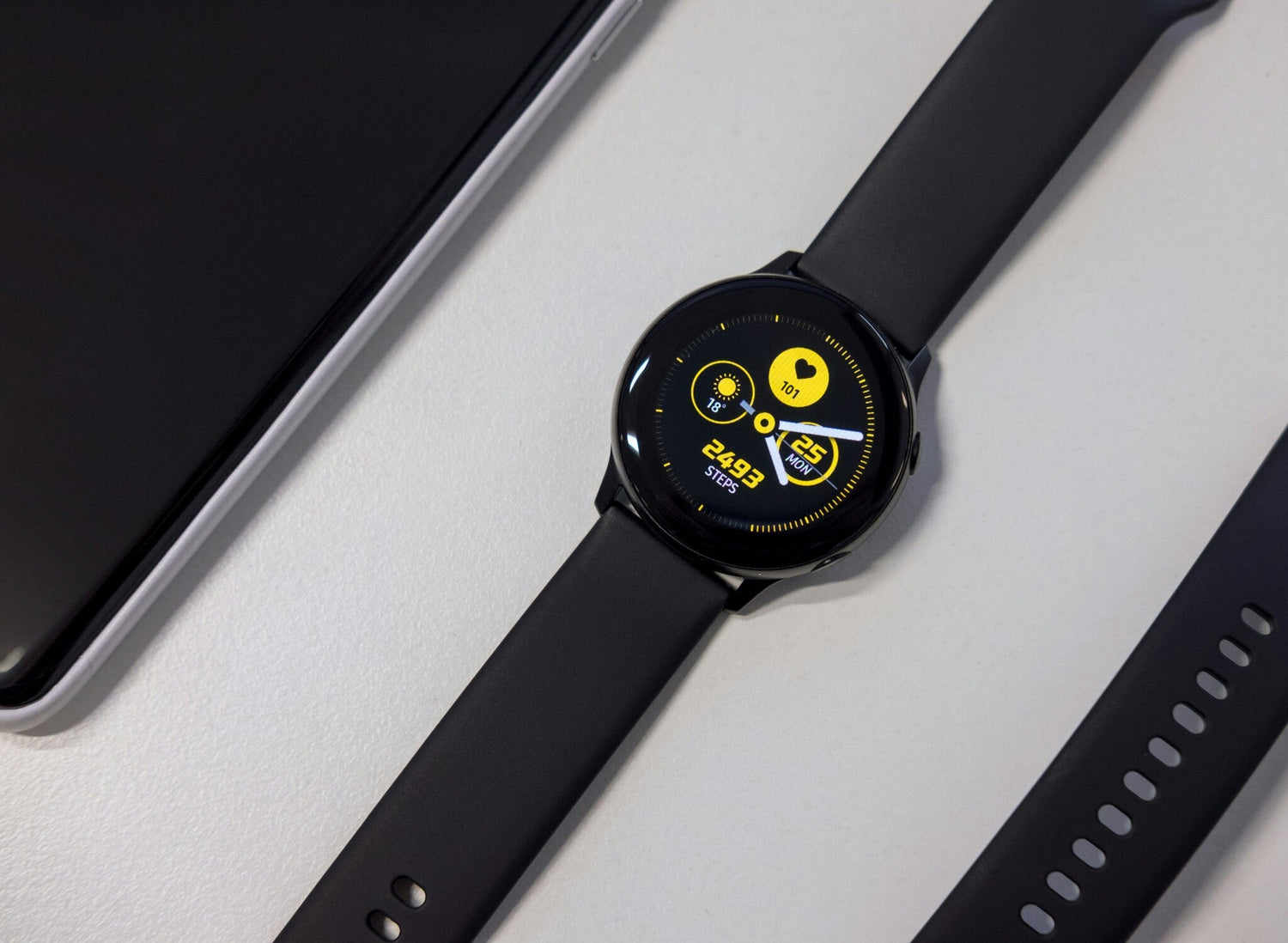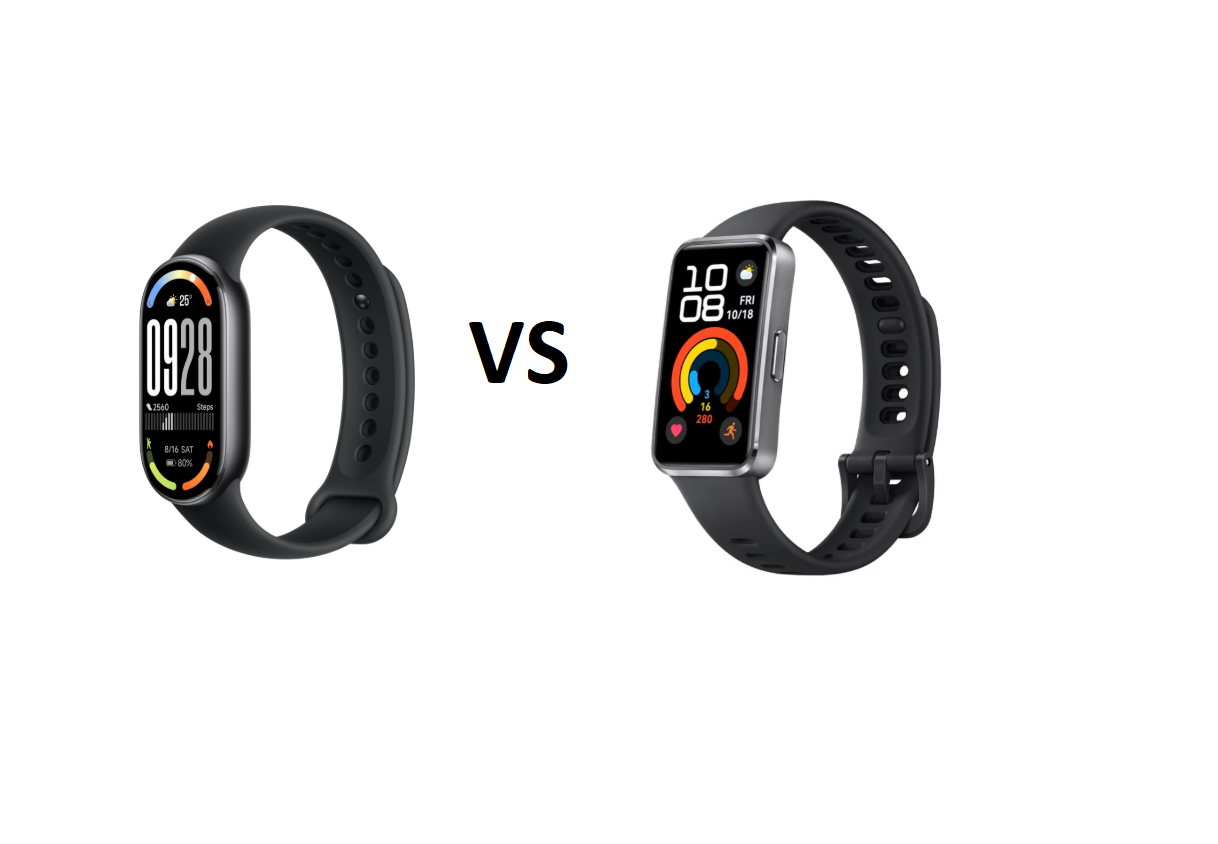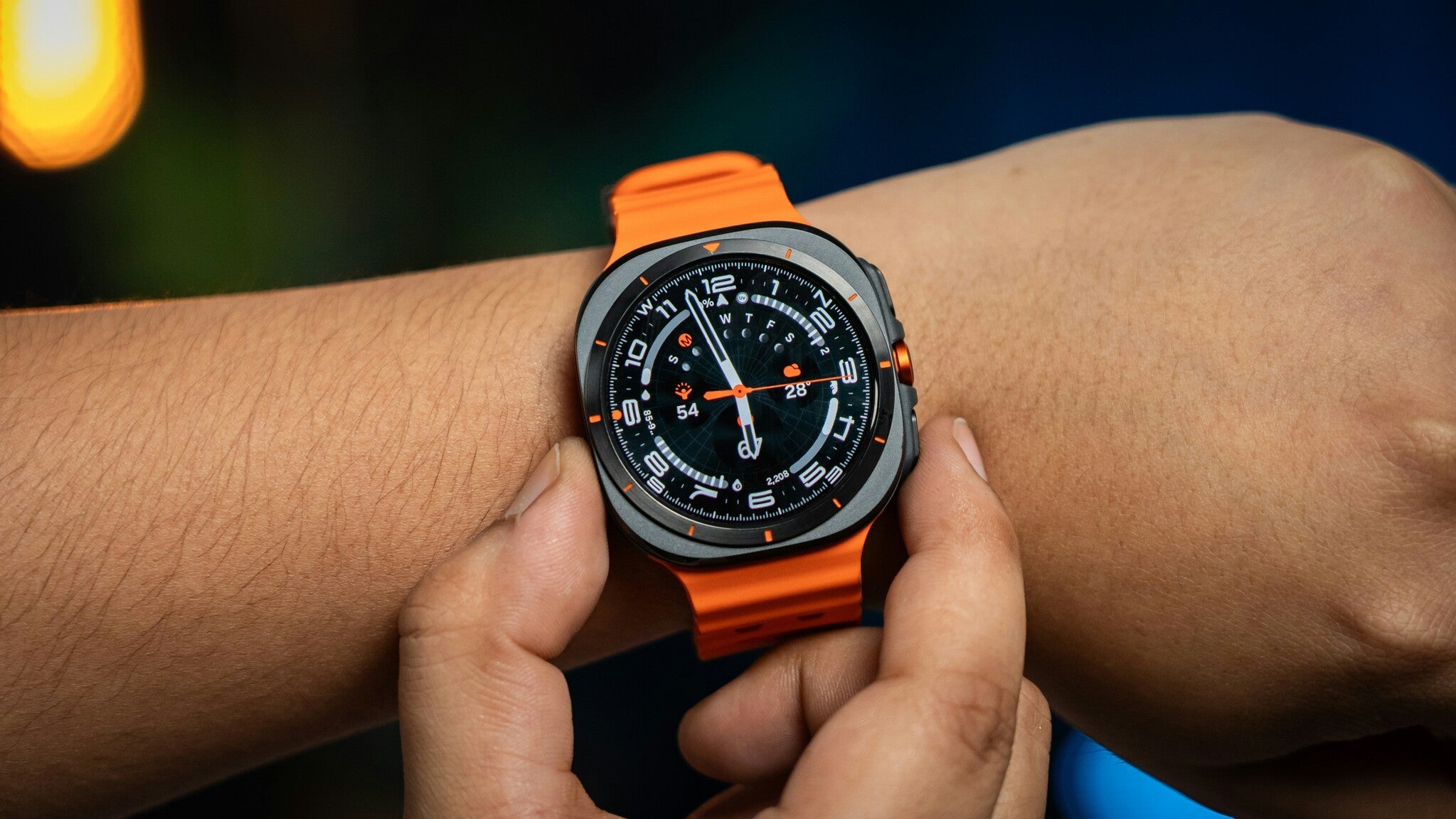Samsung Galaxy Watch 8 vs Apple Watch Series 10: Which Is Best?
The smartwatch market remains exciting in 2025, with the Samsung Galaxy Watch 8 and Apple Watch Series 10 leading the pack. This blog compares their specs and offers a hands-on review of the Galaxy Watch 8 for UK users.
Galaxy Watch 8: £301 (40mm), £344 (44mm); Series 10: £386 (41mm), £429 (45mm)
Specifications Comparison
The Galaxy Watch 8 and Classic launched in July 2025 at Samsung’s Unpacked event, while the Apple Watch Series 10 has been available since September 2024. Here’s a detailed comparison:
Samsung Galaxy Watch 8
- Design: Sleek “squircle” aluminium case (8.6mm thick); Classic model with rotating bezel (10.6mm). Available in Graphite, Silver.
- Display: 1.34" (40mm, 438x438) or 1.47" (44mm, 480x480) AMOLED, 3,000 nits peak brightness.
- Processor: Exynos W1000 (3nm), 3.4x faster single-core, 3.7x multi-core vs. Watch 7.
- Battery: 325mAh (40mm) or 435mAh (44mm), 30 hours (always-on) or 40 hours (off), 25W charging.
- Health Features: Galaxy AI with Energy Score, sleep tracking, Vascular Load, Antioxidant Index, Running Coach, precise heart rate/GPS.
- Software: One UI 8 Watch (Wear OS 6), with Multi-Info Tiles and Now Bar.
- Durability: IP68, 5ATM, MIL-STD-810H certified.
- Storage: 64GB, 2GB RAM.
Apple Watch Series 10
- Design: Rectangular with rounded corners (9.7mm thick), in aluminium (Jet Black, Rose Gold, Silver) or titanium (Slate, Gold, Natural). Sizes: 41mm, 45mm.
- Display: 1.89" (41mm, 374x446) or 2.04" (45mm, 416x496) OLED, 2,000 nits, 1.7mm bezels.
- Processor: S10 SiP dual-core with quad-core neural engine for faster AI/Siri.
- Battery: ~300mAh, 18 hours (normal) or 36 hours (Low Power Mode), improved fast charging.
- Health Features: Heart rate, GPS, altimeter, Workout Buddy, suitable for swimming/shallow diving (6m). No SpO2 monitoring.
- Software: watchOS 11, seamless iOS integration.
- Durability: IP6X dust resistance, 50m water resistance.
- Storage: 64GB, 1GB RAM.
Comparison Table
| Specification | Galaxy Watch 8 (40mm/44mm) | Apple Watch Series 10 (41mm/45mm) |
|---|---|---|
| Display | 1.34"/1.47" AMOLED | 1.89"/2.04" OLED |
| Weight | 30g/34g | 30g/36.4g |
| Battery | 325mAh/435mAh | ~300mAh |
| Battery Life | 30-40 hours | 18-36 hours |
| Processor | Exynos W1000 (3nm) | S10 SiP dual-core |
| Storage | 64GB, 2GB RAM | 64GB, 1GB RAM |
| Water Resistance | IP68, 5ATM | IP6X, 50m |
| Price (from) | £301 (40mm, Wi-Fi) | £386 (41mm, GPS) |
Galaxy Watch 7 vs Galaxy Watch 8
Galaxy Watch 7 Specs
- Display: 1.3" (40mm) / 1.47" (44mm) AMOLED
- Battery: 300mAh (40mm) / 425mAh (44mm)
- Weight: 28.8g (40mm) / 33.8g (44mm)
- Chip: Exynos W930
Watch 7 Pros
- Reliable fitness tracking
- Smooth Wear OS experience
- Competitive price
Watch 7 Cons
- Limited battery life with heavy use
- Heart rate accuracy could improve
What’s New in Watch 8?
- Thinner design (8.6mm vs. 9.7mm), larger “squircle” display
- Bigger battery (325/435mAh)
- Faster Exynos W1000 chip, 64GB storage
- More accurate heart rate/sleep sensors
- AI features: Energy Score, Running Coach
Hands-On Review: Galaxy Watch 8
After a week with the 44mm Galaxy Watch 8, we’re impressed. Its “squircle” design is sleek and elegant, with a sturdy yet light (34g) aluminium case. The 1.47-inch AMOLED display is sharp and vibrant (3,000 nits), perfect for sunny UK days. The Classic’s rotating bezel is a joy for tactile navigation.
Performance: The Exynos W1000 chip delivers lightning-fast app launches and smooth navigation through One UI 8 Watch (Wear OS 6). Multi-Info Tiles and Now Bar make accessing notifications and health data effortless.
Health Features: The Energy Score offers a quick vitality snapshot based on sleep and activity. Enhanced sleep tracking details sleep stages and breathing, while the Running Coach provides tailored tips. Heart rate accuracy shines, even during intense workouts.
Battery: The 435mAh battery lasts ~30 hours with always-on display, up to 40 hours without, charging in ~45 minutes with a 25W charger.
Drawbacks: Optimal features (e.g., ECG) require a Samsung phone; other Android devices may miss some functionality. The price (£301) is higher than the Watch 7 (£258).
Verdict: A top pick for Android users seeking style, health tracking, and long battery life.
Why Choose These Smartwatches?
- Galaxy Watch 8: Ideal for Android users, offering long battery life, a bright display, and advanced health features. Perfect for daily and fitness use. Explore 40mm straps or 44mm straps.
- Apple Watch Series 10: Best for iPhone users with seamless iOS integration and a large display, but shorter battery life.
Price and Availability
- Galaxy Watch 8: From £301 (40mm, Wi-Fi), £344 (44mm, LTE). Available at Amazon UK, Currys, and John Lewis.
- Apple Watch Series 10: From £386 (41mm, GPS), £472 (45mm, GPS + Cellular). Available at Apple and major UK retailers.
FAQs
Release Dates?
Galaxy Watch 8: July 2025; Apple Watch Series 10: September 2024.
Better Battery Life?
Galaxy Watch 8 (30-40 hours) outperforms Series 10 (18-36 hours).
Water Resistance?
Galaxy Watch 8: IP68, 5ATM; Series 10: IP6X, 50m.
iPhone Compatibility for Galaxy Watch 8?
Limited; best with Android, especially Samsung phones.
Conclusion
The Samsung Galaxy Watch 8 excels for Android users with its vibrant AMOLED display, 40-hour battery life, and AI-driven health features. The Apple Watch Series 10 is the go-to for iPhone users, offering seamless iOS integration but trailing in battery life. Choose based on your phone ecosystem and needs, with accessories at smartwatch-straps.co.uk with free UK delivery.




Leave a comment
All comments are moderated before being published.
This site is protected by hCaptcha and the hCaptcha Privacy Policy and Terms of Service apply.